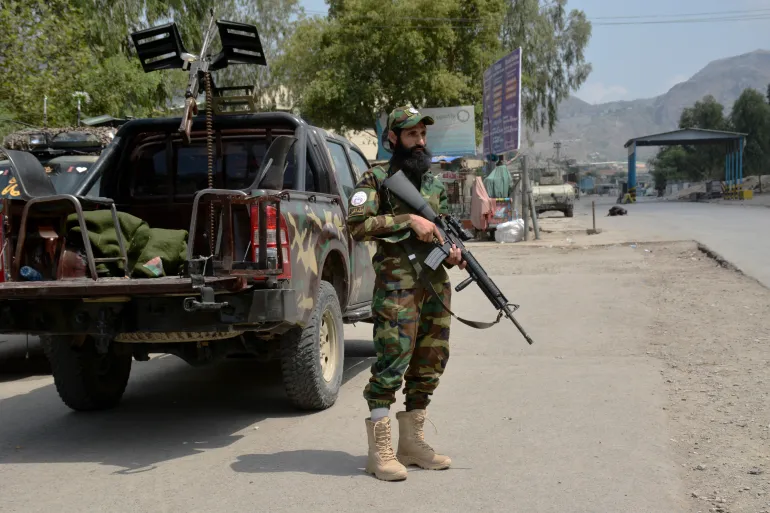Air Strikes Across the Border
Pakistan carried out air raids in Paktika province of Afghanistan late Tuesday night, targeting the hideouts of the Tehreek-e-Taliban Pakistan (TTP). These strikes took place near the Barmal district, close to Pakistan’s South Waziristan in the Khyber Pakhtunkhwa province. Security officials confirmed the operation, although no official statement has been released by Pakistan’s government or military.
Afghan officials claimed the strikes targeted civilians, reporting 46 deaths, including women and children. The Afghan Taliban, now governing Afghanistan, condemned the strikes and warned of retaliation, asserting their right to defend their territory.
Rising Tensions Between Neighbours
Relations between Pakistan and Afghanistan have been strained over accusations of harbouring armed groups. Pakistan has consistently blamed Afghanistan for allowing the TTP to operate from its territory and launch cross-border attacks. Just last week, TTP fighters killed 16 Pakistani soldiers in South Waziristan, escalating tensions further.
Afghanistan’s Taliban government denies providing refuge to the TTP. However, Pakistan has shared evidence at global platforms, claiming thousands of TTP fighters have taken shelter in Afghanistan, posing a daily threat to its security forces.
The Impact of the Air Raids
Tuesday’s strikes are part of Pakistan’s broader military campaign, Azm-e-Istehkam (Resolve for Stability), launched in June to counter rising militant attacks. Analysts suggest the latest air raids were a direct response to the deadly attack on Pakistani soldiers last week.
While Pakistan’s military claims the air raids targeted TTP hideouts, Afghan officials and Taliban representatives have accused Pakistan of harming civilians. This conflicting narrative has further strained bilateral ties.
Mounting Violence in Pakistan
Militant attacks in Pakistan have surged in recent months, especially in Khyber Pakhtunkhwa and Balochistan provinces. According to the Interior Ministry, over 1,500 violent incidents in the first 10 months of 2024 resulted in 924 deaths.
The Pakistan Institute for Conflict and Security Studies reported over 856 attacks so far this year, surpassing last year’s total. These numbers underline the escalating threat posed by armed groups like the TTP, leading to increased military operations along the Afghan border.
Diplomatic Efforts and Challenges
Hours before the air raids, Pakistan’s special representative for Afghanistan, Mohammad Sadiq, met with Afghan interim Foreign Minister Amir Khan Muttaqi. The discussions focused on strengthening bilateral ties and addressing mutual security concerns.
While the meeting was viewed as a trust-building effort, analysts believe it was overshadowed by the subsequent strikes. This disconnect highlights the challenges in creating a consistent policy for addressing cross-border militancy.
Risk of Retaliation
Both Afghanistan and the TTP have signalled the possibility of retaliation. The Afghan Taliban has vowed to defend its territory, while internal communications from the TTP suggest plans for revenge attacks.
This cycle of violence underscores the need for a comprehensive and long-term strategy. Security experts argue that reactive measures, like cross-border strikes, should be part of a broader policy framework rather than isolated actions.
International Reactions and Implications
Despite the serious implications of cross-border air strikes, Pakistan is unlikely to face significant international backlash. Such operations are becoming more common globally as nations grapple with transnational militancy.
But Pakistan’s inability to establish constructive dialogue with Afghan rulers remains a challenge. Decades of engagement in Afghanistan have yet to yield a sustainable diplomatic approach.
The Path Ahead
As violence continues to escalate, both Pakistan and Afghanistan face mounting pressure to address their security concerns. While Pakistan aims to neutralize the TTP threat, Afghanistan’s Taliban government must address accusations of harboring armed groups.
Achieving stability will require not only military action but also sustained diplomatic efforts to build trust and cooperation. Without a clear and comprehensive strategy, the cycle of violence is unlikely to end.

